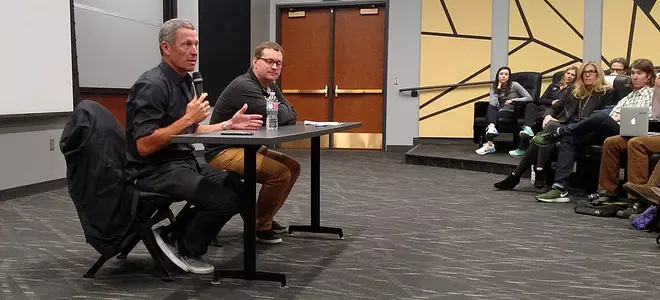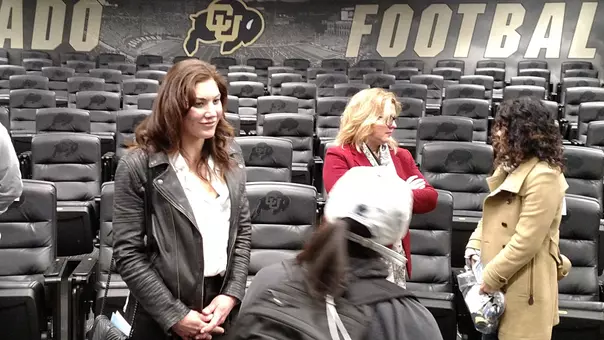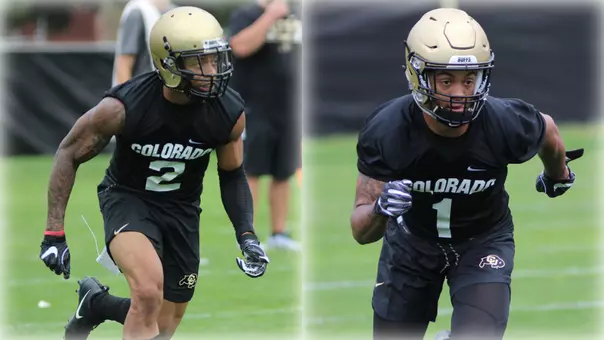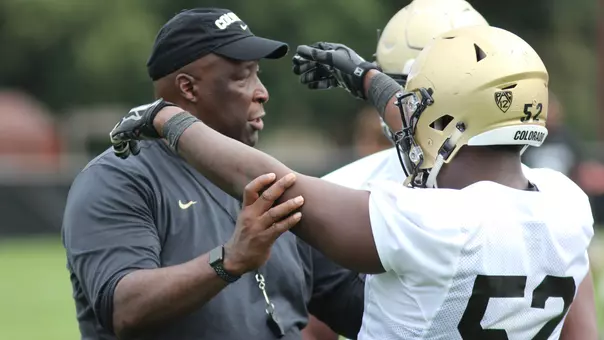Colorado University Athletics

CU Sports Governance Center Gets Final Approval
March 02, 2016 | Sports Governance, Neill Woelk
BOULDER — Tuesday morning, nearly 200 people filled the Petry & Harrington Family Auditorium in the University of Colorado Champions Center to hear former cyclist Lance Armstrong speak.
Technically, Armstrong was in Boulder to talk to Roger Pielke's Introduction to Sports Governance class. But along with more than 80 students from Pielke's class, approximately 100 members of the CU faculty, media and the community were on hand to hear Armstrong talk candidly about his past — in particular, the doping scandal that led to him being stripped of his seven Tour de France titles and banned for life from the sport.
Questions were frank and Armstrong's responses were blunt. It was an entertaining, informative hour that kept the audience engaged.
It was also the perfect introduction to CU's newly approved Sports Governance Center, a resource that will be housed in the CU Athletic Department and one officials believe will benefit the university, the community — and perhaps the entire sports world in general.
“It's what we envision,” said Pielke, the force behind the formation of the SGC, which just last week received final university approval. “This will be a place where we become known for having interesting, difficult, complicated conversations about issues at the forefront of sports.”
Pielke is currently a professor in CU's Environmental Studies Program and a Fellow of the Cooperative Institute for Research in Environmental Sciences (CIRES). He also founded CU's Center for Science and Technology Policy Research in 2001.
His sports governance class came about as a result of his public policy and governance classes. He began discussing the possibility of a sports governance center — housed in the CU Athletic Department — with Athletic Director Rick George about 18 months ago.
George was fully on board with the proposal, and from there, Pielke began serious pursuit of the center's formation. Pielke drew up a program plan, budget and bylaws for submission to the university. Next came the review process through the office of Terri Fiez, CU's Vice Chancellor of Research, followed by legal and financial review. Then came more steps in the approval process, with the final piece coming last week when George and CU Provost Russell Moore signed off on the project.
Now, the CU Sports Governance Center is a reality, having received initial approval for seven years.
“From the beginning, we've thought this would be a great benefit to our athletic department and our institution,” George said. “It's another example of collaboration between athletics, our faculty and our administration. It will not only help us work together to better understand the issues, but it will also be a resource for the community and state. CU could become a worldwide leader in discussion surround sports governance issues."
Pielke envisions the SGC as having an initial three-pronged approach: research, teaching and public outreach.
“We're going to do academic, normal research and publish peer-reviewed papers and commentary,” Pielke said. “We'll teach. We're an academic unit, and that's what's so interesting about the Sports Governance Center. We may be the only — or one of the only — academic units to sit in a department of athletics in the country.
“And then there's public outreach: we want to be known as the place you can go for important, interesting and informative conversations.”
To that regard Pielke wants to make events such as Armstrong's appearance a regular occurrence. His aim is to schedule a speaker series, panels and debates featuring key personalities from the sports world.
“We'll see what the hot topics are in sports, we'll see who students and staff and folks want to see and who we can attract to Boulder,” Pielke said. “We'd like to have someone of the stature and visibility of Lance Armstrong at least once a semester.”
Armstrong spoke to Pielke's class one week after the class heard from U.S. Anti-Doping Agency CEO Travis Tygart, the man credited with the investigation that finally sacked Armstrong.
Pielke also has another speaker lined up for later this semester. Oliver Luck, NCAA executive vice president of regulatory affairs (and father of Indianapolis Colts quarterback Andrew Luck), is scheduled to speak to his class in April.
But the next step for the SGC will be fundraising.
“It takes resources to do anything significant, which is everything from funding for a speaker series to bringing people here to workshops and events, to building a staff,” Pielke said. “We'd like to be able to have other faculty involved, we'd like to have researchers involved, Ph.D. students, post docs, and maybe people who are doing some writing.”
Pielke, who is regularly quoted in major publications as an expert on sports governance issues, recently penned a guest editorial for the Wall Street Journal on the NFL and its ongoing studies of concussions. He's also regarded as an expert on recent issues involving FIFA, the governing body of soccer.
At CU, he envisions a center that would become a source of expertise on all things involving sports governance.
“If something breaks in the sports world, we would like people to say, 'Let's go see what those Colorado folks have to say,'” Pielke said. “We want to become known as the place where you go for informed discussion and commentary on sports topics.”
Pielke would also like to see the SGC offer an undergraduate certificate program. Students would take the current Introduction to Sports Governance Course as the certificate centerpiece, then take other electives across campus in such schools as Business, Arts and Sciences and Engineering.
Currently, the sports governance class has proven to be wildly popular. According to Pielke, the approximately 80 class members represent 20 different majors on the CU campus.
“It's hard to imagine any place better than Boulder for a sports governance center,” Pielke said. “We have the U.S. Olympic Committee down the road (in Colorado Springs); USADA is close; we have major professional sports franchises in Denver and we have several major universities in the area.
“Plus, we have a great diversity of research expertise on campus. We already have 11 faculty affiliates who are interested in this topic and want to engage. Then, in the community, we have Olympic athletes and a vibrant, sports-minded community. There's so much capacity here, if we can't succeed with a sports governance center in Boulder, I'm doing something wrong.”
Contact: Neill.Woelk@Colorado.edu





